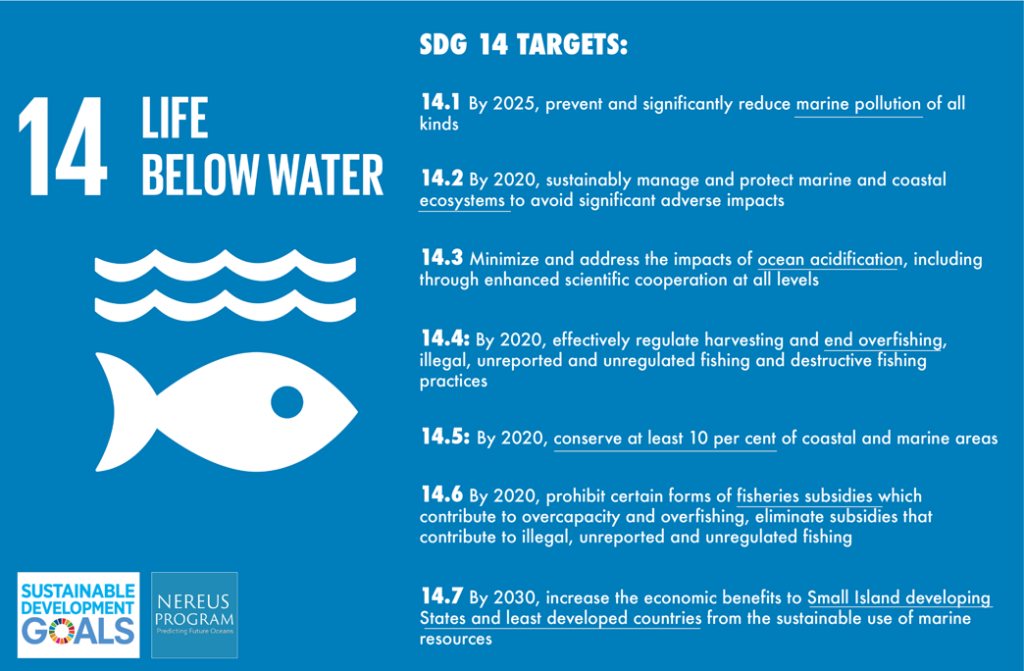Oceans and Humanity: The Imperative for Collective Action at the UNOC3
Syllabus:
GS – 3 – Oceans of the world , tackling pollution , sustainability , preserving ocean ecosystem
Focus :
This article critically evaluates the strategic implications of Artificial Intelligence (AI), particularly the idea of Artificial General Intelligence (AGI), through a detailed analysis of proposals equating AI with nuclear weapons. It challenges flawed analogies, discusses issues with policy recommendations like AI chip control, and emphasizes the need for deeper scholarship to shape future strategic frameworks.

India’s Deep Connection with the Ocean
- India is geographically blessed with a 7,517 km long coastline,influencing the lives of nearly a third of its population.
- Coastal regions in India are crucial for daily life, economic activities, and environmental stability.
- The Indian Government’s Vision 2030 identifies the blue economy as one of the ten core dimensions of national growth.
- Activities such as fisheries, coastal tourism, ports, and marine biotechnology are key contributors to India’s GDP and employment.
Understanding the Ocean as a Global Commons
- The ocean is a shared heritage of humanity — it does not belong to any single nation.
- It provides:
- Food and livelihoods to over one-third of the global population.Protection through coastal ecosystems like mangroves and coral reefs.Energy sources, including tidal, wave, and offshore wind power.Trade routes, making global commerce possible.
- Scientific knowledge, driving innovations in medicine, biotechnology, and climate science.
- It also inspires exploration, culture, and spiritual connections across civilizations.
The Grave Threats Facing the Oceans
a) Plastic Pollution
- Over 8 million tons of plastic enter the ocean annually (Science journal report).
- Plastic pollution:
- Harms marine species through ingestion and entanglement.
- Breaks down into microplastics, infiltrating food chains and ecosystems.
b) Overfishing and Biodiversity Loss
- More than one-third of global fish stocks are overexploited.
- Unsustainable fishing practices disrupt marine food webs and local economies.
c) Climate Change Impact
- Ocean acidification caused by CO₂ absorption affects coral reefs and shellfish.
- Rising sea levels threaten low-lying coastal areas and islands.
- Destruction of marine ecosystems like coral reefs, seagrasses, and mangroves reduces natural carbon sinks and coastal defenses.
The Need for Immediate Multilateral Action
- Ocean-related crises transcend national boundaries, requiring global coordination.
- Protection efforts must match the scale and urgency of threats.
- Current governance frameworks are fragmented and insufficient, creating gaps in regulation and enforcement.
Third United Nations Ocean Conference (UNOC3): A Crucial Milestone
a) Conference Details
- Scheduled from June 9-13 in Nice, France.
- Co-hosted by France and Costa Rica.
- Expected participation:
- Around 100 heads of state and government.
- Tens of thousands of researchers, scientists, activists, and citizens.
b) Objectives
- To mobilize tangible actions for ocean conservation.
- Focus on operational, action-focused outcomes rather than symbolic declarations.
- Strengthen:Global governance,Financing mechanisms,Scientific research and public awareness
Aiming for the “Nice Ocean Agreements”
- Vision to create an international pact for the conservation and sustainable use of oceans.
- The agreements are intended to complement and reinforce the Sustainable Development Goals (SDGs), especially SDG 14: Life Below Water.
- It mirrors the ambition and legacy of the Paris Agreement on Climate Change (2015).
Strengthening Ocean Governance
a) The BBNJ Agreement: A Turning Point
- BBNJ stands for Biodiversity Beyond National Jurisdiction.
- Focuses on the high seas, which make up over 60% of the global ocean.
- Currently, these areas lack comprehensive international governance.
b) Challenges of Ungoverned High Seas
- Massive hydrocarbon and plastic pollution.
- Illegal, unreported, and unregulated (IUU) fishing.
- Capture and harm of endangered marine mammals and species.
Boosting Public and Private Financing for Ocean Protection
- Ocean sustainability requires significant investment.
- Financing should support:
- Marine ecosystem restoration.Innovative clean technologies for shipping and tourism.Sustainable fisheries management.Blue carbon initiatives (e.g., restoring mangroves, seagrasses).
- Public-Private Partnerships (PPPs) are crucial for scaling initiatives.
Opportunities in the Blue Economy
- The ocean economy could outpace the growth of the global economy by 2030.
- New sectors like:
- Offshore renewable energy.Marine biotechnology.Sustainable coastal tourism.Desalination technologies.
- However, economic activities must be sustainable to ensure marine resource regeneration.
The Importance of Enhancing Ocean Knowledge
a) Gaps in Current Understanding
- Despite technological advancements:
- The surface of the Moon and Mars is mapped in more detail than Earth’s oceans.
- About 80% of the ocean remains unexplored.
b) Mobilising Science and Innovation
- Invest in:
- Deep-sea exploration missions.Marine biodiversity research.
- Climate-resilient marine infrastructure studies.
- Develop international scientific collaborations.
- Create open-access ocean data platforms.
c) Raising Public Awareness
- Ocean literacy among citizens is crucial for:
- Encouraging sustainable practices.Building societal pressure for political action.
- Art, media, education, and cultural initiatives can play transformative roles.
India’s Preparations and Contributions for UNOC3
a) Festival of Ideas: “Not in My Ocean”
- Organised by France in India.
- Panel discussions with experts and artists from France and India.
b) Blue Talks in Delhi
- Collaboration between: Ministry of Earth Sciences,Embassy of Costa Rica.
- Aim:
- Bring together Indian institutions and researchers.
- Formulate clear recommendations for the global ocean agenda.
The Ocean: A Shared Responsibility in a Challenging World
- Oceans bind all nations and peoples, regardless of geographical boundaries.
- Amid rising challenges to multilateralism, collective ocean action can serve as a beacon of hope.
- Protecting oceans is essential for future generations, planetary health, and global prosperity.
Conclusion: Making UNOC3 a Watershed Moment
- UNOC3 offers an unprecedented opportunity to:
- Forge lasting international agreements.Mobilise large-scale financing.
- Elevate global scientific cooperation.
- Every individual, institution, and government has a stake and responsibility in securing the ocean’s future.
- By acting together, humanity can ensure that the ocean remains a source of life, inspiration, and prosperity for centuries to come.
Associated Article
Mains UPSC Question
GS 3
- “The ocean is a global commons crucial for ecological balance and human livelihoods, yet it faces severe threats due to inadequate governance and exploitation. Discuss the significance of the Third United Nations Ocean Conference (UNOC3) in promoting sustainable ocean management.’’(250 words).





